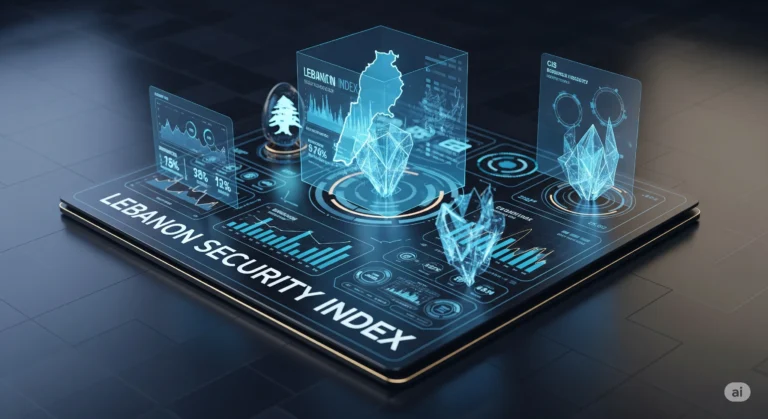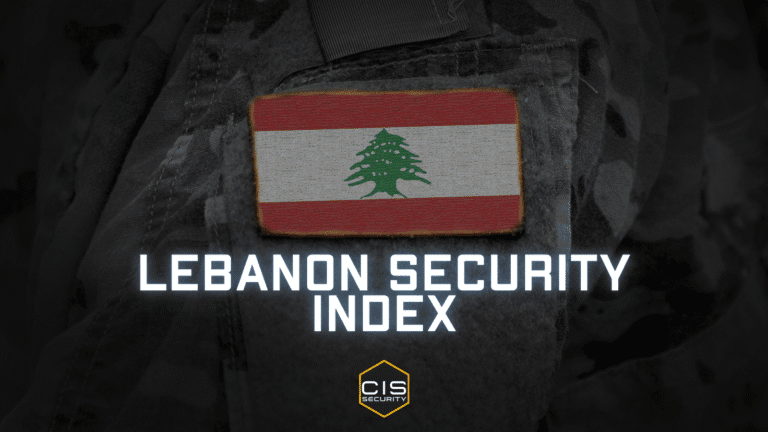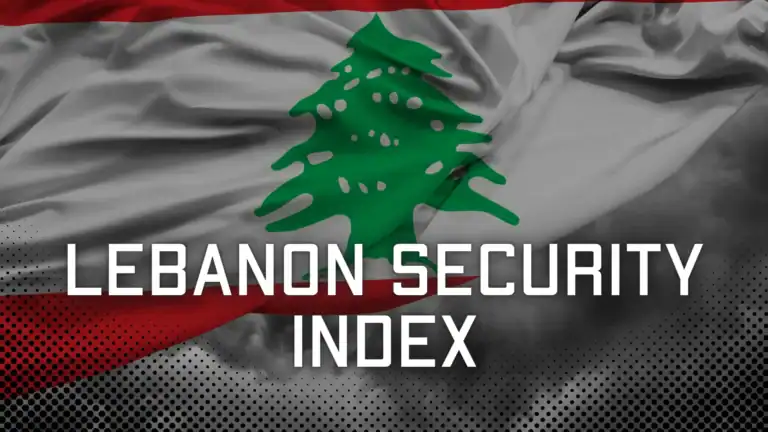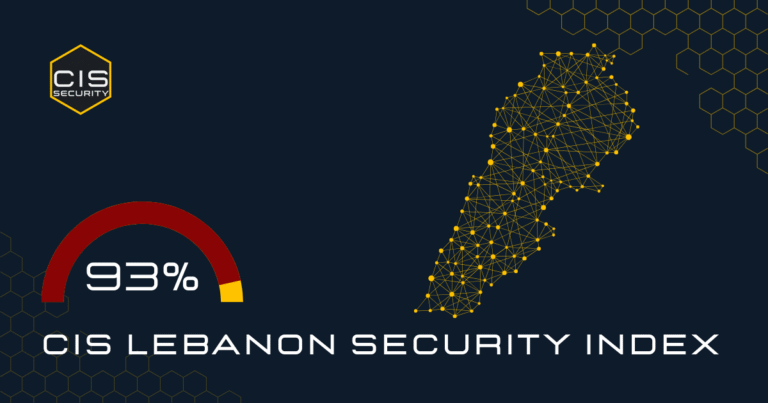Business Security Threats Lebanon 2025: Complete Risk Assessment & Protection Guide
Business Security in Lebanon: A Guide for 2025
The business landscape in Lebanon is defined by a unique set of challenges and opportunities. In 2025, commercial entities face a complex web of security threats stemming from economic instability, regional conflicts, and evolving criminal activities. Navigating this environment requires a proactive and adaptive approach to security, moving beyond traditional measures to a holistic strategy that protects physical, financial, and digital assets. CIS Security has decades of experience protecting Lebanese commercial enterprises, providing tailored solutions that address the specific risks of this market. Our expertise is rooted in a deep understanding of the local context, allowing us to help businesses identify vulnerabilities and implement robust protection strategies.
The current security landscape for businesses in Lebanon is heavily influenced by the protracted economic crisis. The devaluation of the Lebanese pound and banking sector challenges have led to increased economic hardship, which in turn fuels physical and financial crime. Businesses are grappling with more frequent break-ins, theft, and fraud. The regional instability, particularly the conflict in the south, adds another layer of risk, with the potential for infrastructural damage and supply chain disruptions. Furthermore, social unrest and civil disturbances, though less frequent than in previous years, remain a constant consideration for businesses operating in urban centers like Beirut. As a result, commercial security is no longer a luxury but a fundamental requirement for business continuity and resilience.
Current Business Security Threats in Lebanon
Lebanese businesses in 2025 face a multi-faceted threat environment that requires a comprehensive understanding to mitigate effectively.
- Physical Security Threats: The most immediate concern for many businesses is the rise in physical security threats. The economic crisis has fueled a surge in break-ins, theft, and vandalism. Businesses, particularly those handling valuable goods or cash, are prime targets. Workplace violence and disputes are also a growing risk, often exacerbated by economic pressure and strained working conditions.
- Economic Crime: Financial crimes like fraud and embezzlement are becoming more prevalent. With currency instability and a volatile banking sector, businesses are more susceptible to internal and external financial manipulation. Phishing attacks and other forms of digital fraud are on the rise, targeting companies’ financial systems.
- Personnel-Related Threats: Internal risks pose a significant challenge. Internal theft by employees, though often subtle, can lead to substantial losses. Workplace disputes and disgruntled employees can also escalate into security incidents. Ensuring employee safety is critical, requiring clear protocols for managing conflicts and providing a secure working environment.
- Cyber Security Integration: The line between physical and digital security is blurring. Businesses are increasingly exposed to threats that have both a physical and a digital component. For instance, a physical break-in could be a cover for a data theft, or a cyber attack could be used to disrupt a business’s operational technology.
- External Economic & Social Factors: Beyond crime, businesses must contend with systemic issues. Currency instability affects cash handling and financial security, while persistent power outages and telecommunications disruptions leave businesses vulnerable to operational downtime and security system failures. The potential for social unrest, including protests and demonstrations, can disrupt business operations and create security risks for premises and personnel.
- Regional Instability Impact: The ongoing regional conflicts can have a direct impact on businesses, particularly those in the import/export sector. Disrupted shipping lanes and supply chain vulnerabilities, along with the threat of infrastructure damage, necessitate robust contingency plans.
Industry-Specific Security Risks
Security needs are not one-size-fits-all. CIS Security provides specialized solutions tailored to the unique risks of various industries in Lebanon.
- Banking & Financial Services: This sector faces heightened risks of cash handling theft, ATM fraud, and security breaches. Protecting customer data and securing digital transactions is paramount. Our services include armed guards, secure transport, and integrated digital surveillance systems to prevent both physical and cyber-attacks.
- Retail & Commercial: Shoplifting and inventory protection are major concerns for retailers. We implement systems for access control, CCTV monitoring, and patrol services to deter theft and ensure the safety of customers and employees.
- Healthcare Facilities: Hospitals and clinics require a delicate balance of security and accessibility. Key risks include patient safety, especially in emergency departments, and the protection of valuable assets like pharmaceuticals and medical equipment.
- Manufacturing & Industrial: Large industrial sites are vulnerable to theft of equipment and raw materials. We focus on worker safety, securing entry/exit points, and protecting the entire supply chain from production to distribution.
- Hospitality & Tourism: Hotels and restaurants must ensure guest safety while maintaining a welcoming atmosphere. Risks include property damage, theft, and reputation management. Our security teams are trained in customer service and discreet protection to safeguard guests and their belongings.
- Technology & Startups: This growing sector in Lebanon is particularly vulnerable to the theft of intellectual property and high-value equipment. We provide advanced access control and surveillance to protect sensitive data and prevent unauthorized entry.
- Import/Export Businesses: These companies face security risks related to cargo theft, customs considerations, and compliance with international regulations. Our services include secure warehousing and logistics security to protect goods throughout the supply chain.
Comprehensive Risk Assessment Framework
A layered and effective security strategy begins with a thorough risk assessment. Our framework is designed to identify vulnerabilities and prioritize protection efforts.
- Physical Security Assessment: We start by evaluating your physical premises, analyzing building vulnerabilities, access points, and perimeter security. This includes assessing the effectiveness of existing locks, doors, windows, and fences.
- Personnel Security Evaluation: This crucial step involves reviewing employee screening and background checks, as well as the implementation of access controls to restrict movement within the workplace.
- Asset Protection Analysis: We identify and catalog your most valuable assets, including inventory, equipment, intellectual property, and financial assets, and assess the threats to each.
- Operational Risk Assessment: Our analysis extends to business operations, covering business continuity, supply chain security, and vendor management. We assess how a security incident could disrupt your operations and how to build resilience.
- Legal & Compliance Review: We ensure that your security measures comply with Lebanese business security regulations and industry standards, minimizing legal exposure and liability.
- Emergency Preparedness Evaluation: We help you develop and test crisis response and evacuation procedures, and create a robust business continuity plan to ensure you can recover from a major incident.
Layered Security Implementation Strategy
An effective security plan requires multiple layers of defense that work together to deter, detect, and respond to threats.
- Perimeter Security: The first line of defense includes fencing, barriers, and access control points. We also use surveillance systems (CCTV) to monitor the entire perimeter, providing a visual deterrent and real-time threat detection.
- Building Security: This layer focuses on securing the building itself. We implement entry controls, a strict visitor management policy, and secure internal areas. We also ensure emergency systems like fire alarms and panic buttons are in place and fully functional.
- Personnel Security: Our professional guard services provide a highly visible and trained presence. We also offer employee training and access management to control who can access specific areas of the business.
- Technology Integration: Modern security relies on a suite of integrated technologies. We deploy CCTV cameras, alarms, and access control systems that are networked to a central monitoring station for constant oversight and rapid response.
- Operational Security: We help businesses establish secure cash handling procedures, inventory management systems, and document security protocols to prevent internal and external theft.
- Emergency Response Systems: For immediate threats, we can install panic buttons and establish clear emergency communication protocols. Our guards are trained in first aid capabilities to provide immediate assistance before emergency services arrive.
- Regular Security Audits: Security is not a one-time fix. We conduct ongoing security audits to assess the effectiveness of your systems, adapt to new threats, and ensure your protection remains state-of-the-art.
Employee Safety & Training Programs
Your employees are your most important asset and a critical part of your security strategy. A well-trained workforce can be your best defense against threats.
- Security Awareness Training: We educate employees on how to recognize and report threats, including identifying suspicious individuals or vehicles, and understanding common scams like phishing. We also establish clear reporting procedures for all security-related incidents.
- Personal Safety Education: We provide training on workplace violence prevention and basic personal protection strategies, empowering employees to protect themselves and their colleagues.
- Cultural Sensitivity Training: In Lebanon’s diverse society, managing a multicultural workforce requires sensitivity. We offer training on cultural considerations to ensure effective communication and conflict resolution.
- Emergency Response Training: In a crisis, a fast and coordinated response is vital. We train employees on evacuation procedures, first aid, and crisis communication protocols to ensure they know how to act during an emergency.
- Technology Security Training: As threats converge, employees must be trained on how to protect digital assets. This includes training on password hygiene, secure data handling, and recognizing cyber threats.





